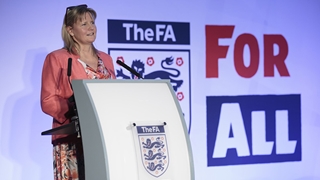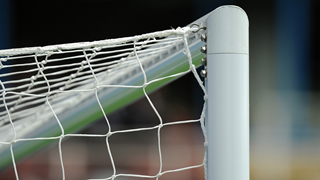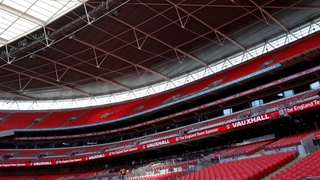
We instinctively support, promote and safeguard the things we love. Football is one of those things for me and millions of other people in this country.
I’ve been privileged to spend a lifetime in football, initially as a player for club and country – playing in grassroots clubs as well as for England in the mid-80s to early 90s, when the women’s game was run by the phenomenal and mostly voluntary Women’s Football Association.
And for the past 20 years and since 2006 as head of safeguarding, working for the FA to influence the way the game seeks to protect and safeguard those involved – especially children and adults at risk.
Two notable child sexual abuse cases came to light in sport settings in the mid-to-late 1990s (Hickson in swimming and Bennell in football), and as a result the NSPCC and Sport England came together and formed a task force to look at what needed doing to assist sport’s governing bodies – I was part of that process, even though at that time I was working elsewhere.
The task force’s recommendations included the creation of a Child Protection in Sport Unit (CPSU), to support sport’s governing bodies to drive safeguarding across their work. That’s when I joined the FA, as part of a team helping to establish football’s strategic approach, which is underpinned by:
• Safeguarding policies and procedures, including clear procedures for reporting concerns;
• A network of designated safeguarding officers across the game;
• Safeguarding training programmes that are a requirement for coaches, referees, welfare officers and committee members;
• Mandatory disclosure and barring service checks for everyone in regulated activity;
• A cohort of safeguarding professionals to manage any reported safeguarding concerns;
• Safeguarding standards for professional clubs, county associations and grassroots clubs;
• Safer working practice guidance;
• Working alongside external expert agencies such as the NSPCC’s CPSU, the Police, children and adult social care teams and the disclosure and barring service.
As a result of all of the awareness-raising work in football and society, the FA’s safeguarding case management team deals with a steady flow of referrals and works closely with the statutory agencies for advice and guidance. We see referrals as an important and positive indicator that more people are recognising, responding and reporting when they have concerns.
Since the turn of the century, the role of safeguarding at the FA has grown in impact, and has included pivotal moments, such as the introduction of mandatory safeguarding training for coaches in 2000-01 and criminal records checks that were required for certain types of role from 2003-04 onwards (e.g. coaches), since which circa 766,000 checks have been carried out.
Or the 2007-08 season when we appointed the first salaried designated safeguarding officer workforce in all County FAs in England. Also, in 2008, having a club welfare officer moved from being a voluntary to a mandatory affiliation requirement for any grassroots or professional club with youth teams or players aged under-18. Two years later, and already in men’s club licences, 2010 saw safeguarding requirements embedded into licences for clubs competing in the inaugural FA Women’s Super League.
But there’s no question that November 2016 was a watershed moment for safeguarding in football – and sport generally – in this country. It was then that Andy Woodward and several other former players came forward to talk publicly about the appalling sexual abuse they had suffered at grassroots and professional football clubs when they were children. Their public disclosures led to hundreds more people coming forward to the Police.
While the allegations of abuse were non-recent, it rightly forced immediate reflection and action from the FA as the game’s governing body in England. ‘Keeping children safe in football’ is an ethos shared by the football authorities in this country and there is strong collaboration in safeguarding.
A key FA priority was setting up support for survivors. Former FA chairman Greg Clarke and I started meeting survivors who expressed a desire to meet immediately, and since then the FA has met dozens of survivors. In each of these meetings, Greg personally apologised for the appalling abuse that these survivors had experienced in a football context.
We recognised that football needed to act to support the people who were coming forward, many of whom were struggling as their childhood trauma rushed to the surface – given the considerable media focus and attention that these powerful disclosures rightly received.
The FA-funded a therapeutic service for survivors of non-recent child sexual abuse early in 2017, partnering with Sporting Chance. This is the charity founded by former England international footballer Tony Adams MBE providing support to individuals and organisations across sport to address mental health, emotional welfare and addictive disorders.
Support from the FA has been offered via several routes: meetings with the Chairman; through Sporting Chance; by the FA Benevolent Fund; and through the PFA Survivor Support Advocacy service (for survivors from the grassroots and pro game). Find out more here.
Concurrently, we commissioned the independent review into child sexual abuse allegations in football, in December 2016. Led by Clive Sheldon QC, the scope of the review evolved as more information came to light, and we have been unstinting in our support of it. Now it is published, we are reflecting fully on its content and will embrace the recommendations, within our safeguarding plans.
Another critical workstream entailed ongoing liaison and cross-working with Operation Hydrant, set up in June 2014 by the National Police Chief’s Council (NPCC). It nationally co-ordinates the police response to non-recent child sexual abuse investigations concerning persons of public prominence, or in relation to those offences which took place within institutional settings.
In support of criminal investigations and the FA-commissioned review, Operation Hydrant was given full access to the FA’s archived material and liaised with Clive Sheldon’s team, so both parties could access all relevant materials.
The November 2016 revelations were a huge jolt, and thankfully over the past four years, they have led to a significant number of criminal convictions of the perpetrators.
While we will continue to learn from these cases, it’s also important to place this against the background of the FA’s safeguarding work to that point, and the fact that no such safeguarding framework was in place when the non-recent incidents happened.
Since 2000, we’ve built a range of mandatory safeguarding courses to help support those running clubs understand how to create child-friendly football, promote behaviour that’s acceptable and the know-how to raise any concerns. To date, we’ve had 878,000 people complete FA safeguarding courses.
Today, every County FA has people in designated safeguarding roles. These include a designated safeguarding officer (DSO), senior safeguarding lead (usually the CEO) and a named board safeguarding champion. The DSOs across the country lead the work to co-ordinate and support safeguarding work in grassroots clubs, including supporting the network of circa 8500 voluntary club welfare officers.
The range of FA mandatory safeguarding requirements for grassroots clubs are all embedded in the Safeguarding Operating Standard for County FAs, first published in 2017. The Standard includes safeguarding visits by County FAs to 13% of clubs across the country each season. All County FAs must comply with it and are independently assessed against it. The FA and County FAs track ‘live’ compliance with DBS Checks and training compliance across the grassroots youth game. Separately, in line with Premier League and EFL requirements, all professional clubs are independently assessed against their safeguarding standards.
We formalised a Survivor Support and Safeguarding Advisory Group in 2018, which brings together former footballers with lived experience who want to collaborate with others, alongside independent safeguarding professionals and specialist organisations. Some members with lived experience have waived their anonymity and some haven’t, and they’ve published helpful guidance for other survivors on the process to decide whether to waive anonymity or not.
Earlier this year, the Government published their Tackling Child Sexual Abuse Strategy and we welcome this and the Government’s recent confirmation that the position of trust legislation applicable to teachers in schools will be extended to sports coaches. This will make it illegal for coaches to engage in sexual activity with 16-17-year olds in their care, which will strengthen the safeguards for all sports. This change in legislation is as a direct result of former footballers and other brave sportsmen and women coming forward and disclosing the sexual abuse and exploitation they have suffered and the subsequent lobbying by MPs, the NSPCC, sports, including the FA, and survivors. This reinforces the importance of us all working together, and the role of Government in assisting with closing loopholes.
To see the breadth of safeguarding areas the FA covers today, including the work that survivors of abuse contribute to, visit our safeguarding pages and you’ll see the range of safer working practice guidance notes we provide. But behind everything we say or publish is one central thought: safeguarding is everyone’s responsibility. We can create a solid framework, but we’re only as good as the people and actions that take place week-in week-out throughout the country.
So, I want to acknowledge and thank the thousands of people who have played and/or continue to play their part in proactive safeguarding work in football over the years, either as volunteers across the game or as paid staff at the FA, County FAs, leagues and clubs.
We’re committed to striving for a culture that ensures safeguarding is always front of mind in every football activity involving young people. That’s why we produced the film ‘Let’s talk about keeping children safe in football’, as part of the NSPCC’s Parents in Sport Week this season.
We want everyone to play their part in safeguarding and to enjoy our national sport. Our job is to keep driving a child and adults at risk centred culture and to put the checks and balances in place to ensure that this is always a reality.
See the FA's key actions in non-recent child sex abuse since 2016.









